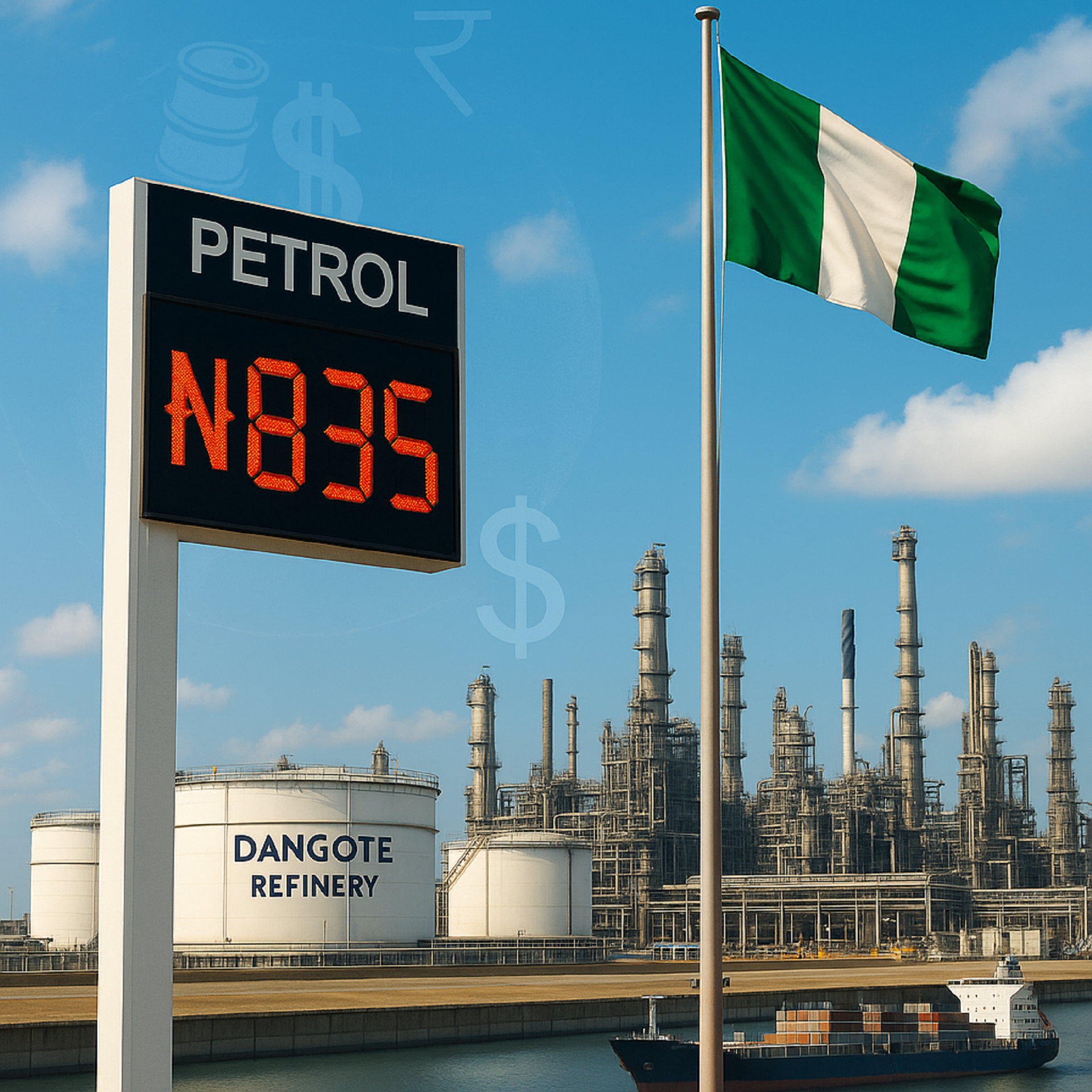Dangote cuts fuel price
Dangote Refinery Cuts Petrol Price to ₦835 Amid Naira-for-Crude Deal Resumption
According to sources within the downstream petroleum sector, the new price includes statutory levies imposed by the Nigerian Midstream and Downstream Petroleum Regulatory Authority (NMDPRA). The strategic adjustment by Africa’s largest refinery comes at a time of increased market volatility and pressure for domestic price stabilization.
Diesel, Jet Fuel Prices Remain Steady
While the petrol price sees a downward trend, other fuel products have not followed suit. Diesel remains priced at $608 per metric tonne, with an additional $70 gantry surcharge. Payments are accepted either in U.S. dollars or at a conversion rate of ₦1,650 to the dollar. Similarly, jet fuel is currently priced at $664.75 per metric tonne, plus $42 for gantry charges and a $22 coastal surcharge.
On the other hand, prices for cooking gas and coastal sales of other petroleum products remain unchanged, pending further market guidance.
Fuel Imports Continue as Spot Prices Drop
The reduction in Dangote’s petrol price coincides with ongoing import activities. Marketers recently secured regulatory clearance to import 117,000 metric tonnes—equivalent to approximately 156.9 million litres—of petrol between April 8 and 16, 2025. Six vessels reportedly delivered the cargoes through the Tin Can and Calabar ports, contributing to the current supply glut.
Market analysts note that the spot import parity price has dropped to ₦853 per litre, with the 30-day average cost now pegged at ₦844.84 per litre. These developments likely influenced Dangote’s pricing strategy, reinforcing its competitive edge against imported fuel.
Policy Shift: Naira-for-Crude Deal Resumes
Sources also link the recent price movements to the Federal Government’s decision to resume the Naira-for-Crude arrangement with local refiners—a scheme that had previously been put on hold. The deal, designed to enable local refineries to access crude oil in exchange for naira payments, is expected to ease pressure on foreign exchange reserves while supporting local fuel production.
Industry stakeholders see the price reduction as a signal of increased confidence in domestic refining capacity, as well as a step toward insulating the Nigerian economy from global fuel price shocks.
As the market adjusts to this new wave of pricing, attention will remain fixed on the ability of local refineries to sustain supply and ensure price competitiveness in the long term.







